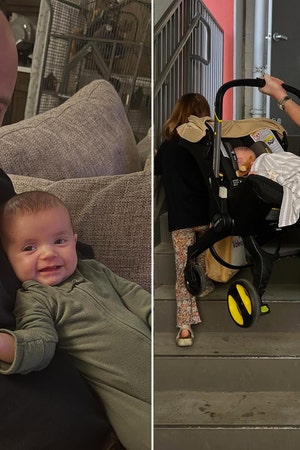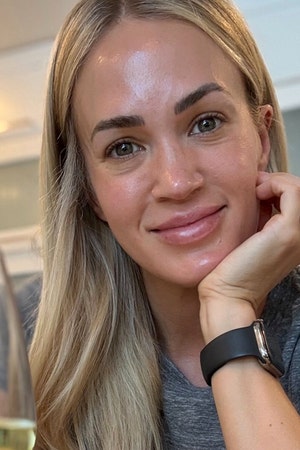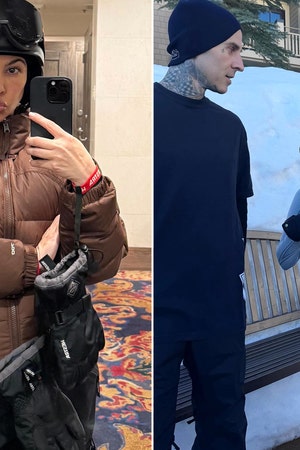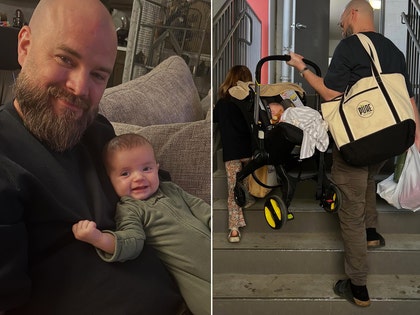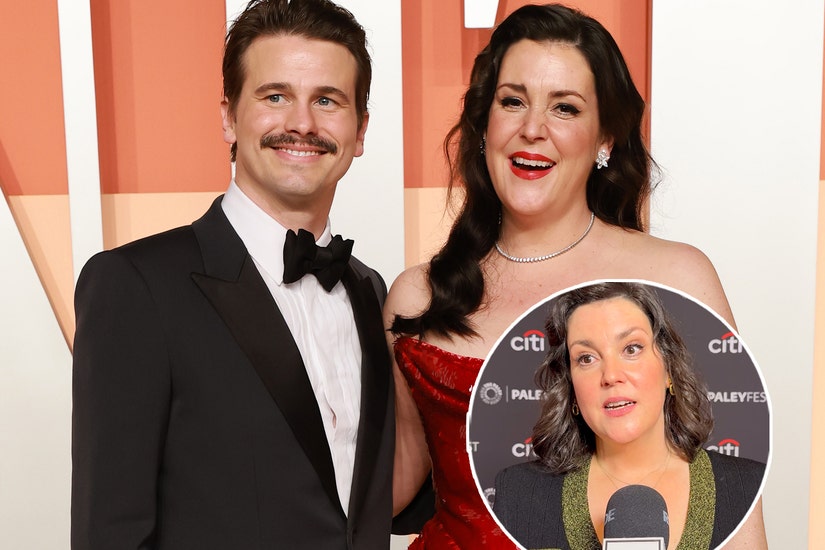 Sofia Alvarez/SELF
Sofia Alvarez/SELF
Bader said she was "not f--king okay" from her surgery, adding it "was truly the scariest time of my life" -- while also revealing her negative experience with weight loss drugs and feeling "uncomfortable" with her new size.
Remi Bader is opening up about her drastic weight loss for the first time.
In a tell-all interview with SELF magazine, the TikTok star revealed that she underwent bariatric surgery -- a single anastomosis duodenal-ileal bypass with sleeve gastrectomy -- and detailed the "brutal" procedure and "horrible" recovery.
Bader -- who first gained her following for being a plus-sized influencer sharing her "realistic" hauls from clothing stores -- detailed what led to her surgery, recalling her years-long battle with binge eating disorder, her struggles to lose weight after it began to affect her health, and suffering from depression.
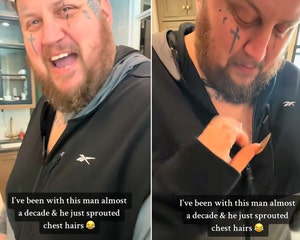 TikTok
TikTok
Jelly Roll's Wife Bunnie XO Reveals Surprising Change In His Body After Dramatic Weight Loss
View Story"I loved being curvy my whole life; I just did. It was who I was," the internet star, 30, said, adding that when her health issues worsened, it felt like "it was a battle."
"So will always believe that you could be a bigger size and be healthy and happy. I was for a while, that wasn't a lie," Bader said. "But there was a point when it shifted, and I became really unhappy."
In her interview, Bader detailed the many weight loss treatments she tried in the years leading up to her surgery -- a few of which she had previously shared with her fans.
As noted in SELF, Bader tried several weight loss medications, including Rybelus, an oral semaglutide medication, and Ozempic, which she previously revealed made her sick.
"It's different for everyone, [but] I was throwing up every day from it," she told SELF.
Other medications she tried included: Contrave, an oral weight loss medication, Wellbutrin, an NDRI antidepressant, and Mounjaro -- aka tirzepatide -- an antidiabetic drug like Ozempic also used for its weight loss benefits.
 Sofia Alvarez/SELF
Sofia Alvarez/SELF
Bader shared that she started Mounjaro "very secretly" in September 2022, just months after she attended a six-week outpatient eating disorder treatment program the previous May, admitting that she began binging again "almost immediately."
She told SELF that she remembered thinking at the time that trying Mounjaro was the "worst thing I could be doing."
"'I just talked about how I went to treatment…. No one could ever know about this,'" she recalled.
Like Ozempic, the Mounjaro injections made her vomit. Despite this, Bader said her doctor had her try Ozempic again -- this time with Metformin, another antidiabetic medication. She continued to throw up, and stopped all medication, before giving Vyvanse -- a medication used to treat ADHD and binge eating disorder -- a try in June 2023, but like all other previous treatments, it was not successful.
It was at this point that Bader said her battle with her eating disorder worsened, and as a result, her health suffered, including experiencing severe back pain that left her bedridden, sweating profusely, sleep apnea, and other concerns that showed up in lab work: high cholesterol, heart issues, and fatty liver disease. She said her doctor also told her she was "becoming infertile" after she was getting full periods, telling SELF that that health issue "scared me more compared to other things."
Bader said she struggled to decide about what she was going to do to ultimately feel better. "I think it’s a constant battle of: What do I do that's right? What do I do for everyone else? What do I do for me? It actually was making me lose my mind," she recalled.
After consulting with bariatric surgeons in New York City, Bader decided she was going to undergo weight loss surgery, and at the suggestion of her doctor, landed on a single anastomosis duodenal-ileal bypass with sleeve gastrectomy (SADI-S).
She told her boyfriend at the time and her parents, and had her surgery in December 2023. According to Bader, she believed the surgery would result in a short recovery, but the exact opposite occurred.
"I need to say that it was the most brutal thing," she told SELF. "I get the surgery. I was in recovery hours, hours, hours, hours, throwing up. It was not normal. I was supposed to leave [the hospital] in one day. I could not stop projectile vomiting, and I couldn't drink water. They won’t let you leave if you can’t drink water. I actually can’t explain how horrible it was."
While a physician told SELF that the procedure usually has a two to three week recovery time, Bader said she was "not f--king okay" from her surgery until mid-February 2023.
"I'd gotten into a very, very deep depression, and it was truly the scariest time of my life," she recalled. "I couldn't tell people. I really -- I wanted to die."
After her doctor increased the dose of her antidepressants, she began to feel better, before she and her boyfriend broke up.
Now, looking back, over two years later, a healthy and happy Bader said her progress "happened very subtly." She still remains on antidepressants, attends therapy, and exercises regularly.
"My binge eating is better," Bader said. "I'm still struggling and I have those thoughts, but I can’t physically binge as much because I don’t have the room for it."
She said another side effect of the surgery is that she will feel sick and even vomit if she eats too much. Bader added that she's also suffered hair loss.
And while she's so much "happier overall right now" and no longer struggles with some of the health issues she previously faced, such as back pain, she's still not comfortable with her weight loss -- especially because of how fast she lost it.
"I never thought it would be this quick," Bader admitted. "I never wanted to be this size…I’m probably the only person that's ever gone to a doctor for weight loss to be like, 'Okay, but can I still be curvy?' It's really confusing to be so quickly in a different body but have the exact same brain."
"I'm still uncomfortable. I've never looked like this. I've never felt this way. I've never been this size," she continued. "So when people comment now, 'Tiny, skinny. Oh my God, your legs, your arms, this, this,' that’s really triggering for me. It's just, I think people think that was all that it took to be happy…. It’s just not true."
While Bader may look different now, she said it's not stopping her from continuing to be a size-inclusion advocate.
"I just think it’s fascinating, the way the world is treating me," she told SELF. "I still want to fight for inclusivity and all these things, but I feel like I'm not allowed to. People are like, 'Well, you no longer relate to us.’' And I'm like, Why is that fair? Because I actually feel like I’ve been in so many different bodies and so many different situations, why can't I still be the one advocating?"
If you or someone you know needs help with mental health text “STRENGTH” to the Crisis Text Line at 741-741 to be connected to a certified crisis counselor.
If you or someone you know is struggling with depression or has had thoughts of harming themselves or taking their own life, get help. The National Suicide Prevention Lifeline (1-800-273-8255) provides 24/7, free, confidential support for people in distress.
If you or someone you know is struggling with an eating disorder, get help. Contact the National Eating Disorders Association (NEDA) at 1-800-931-2237 or go to NationalEatingDisorders.org.




